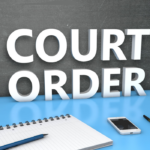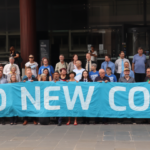What Types of Cases Appear at Parramatta District Court?

The NSW court system is divided into three different levels of court. The local court deals with less serious matters.
Local court hearings are presided over by a magistrate rather than a judge and jury. The district court is where more serious criminal cases are heard.
Most cases that are heard at the district court are heard by a judge and jury, or in some cases a judge alone.
The only matters that can’t be heard by a district court are murder and treason. These cases have to be dealt with in the supreme court.
Parramatta District Court is a large court complex, which deals with a wide range of criminal and civil cases. It is also called ‘Sydney West Trial Courts’.
The district and local courts are located in different buildings just across the road from each other, and appeals from the local court are heard in the district court.
Indictable offences
The district court generall takes care of matters that are considered too serious for the local court.
This includes specific strictly indictable offences such as:
- Causing grievous bodily harm with intent.
- Discharging a firearm with intent.
- Using a corrosive substance/fluid with intent.
- Dangerous driving occasioning death.
- Recklessly wounding a police officer in the execution of duty.
- Sexual assault without consent.
- Child abduction.
- Kidnapping.
- Money laundering.
As well as strictly indictable offences, Parramatta District Court also deals with less-serious offences that the defence or prosecution has elected to have dealt with in the district court as an indictable offence. These are called ‘Table 1’ and ‘Table 2’ offences.
Some of the offences which fall into this category include:
- Larceny.
- Dangerous driving occasioning ABH or GBH.
- Common assault.
- Assault with act of indecency.
- Produce, disseminate or possess child pornography.
- Bigamy.
- Affray.
- Riot.
The prosecution or defence in this type of case may elect to have it dealt with in the district court, particularly if it is on the more severe side..
Whether or not offences are dealt with summarily or in the district court generally depends on their specific nature and what the likely outcome will be for a finding of guilt.
From a defendant’s point of view, a trial in the district court in front of a jury rather than a magistrate alone can sometimes give them a better chance of a fair outcome in certain situations.
However, there is also the risk of a more severe sentence if they are found guilty.
From the point of view of the prosecution, a district court trial can mean a harsher sentence than a local court trial.
Appeals
Parramatta District Court also deals with appeals from the local court.
If a defendant disagrees with the outcome of a criminal matter in a local court, they can apply for an appeal at the district court.
They might disagree with being found guilty, or they might believe that the penalty is too harsh and want to request their sentence be reviewed.
Once the appeal date has been set at the district court, the judge will review the evidence from the first trial and listen to the defendant’s appeal.
They will then decide whether to uphold the original decision or amend it.
As well as appealing the outcome of criminal hearings, the district court can hear appeals regarding AVOs, disqualification from driving and other notifications the defendant might want to appeal against.
Parramatta District Court deals with a large number of different matters, both criminal and civil.
If you are due to appear at Parramatta District Court, or you have any questions, speak to a Parramatta criminal lawyer for advice.






